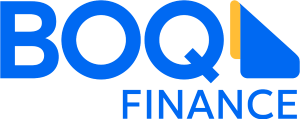
What you need to know to maximise your business cash flow
Australian businesses may need to face a longer COVID-19 challenge than seemed likely a few weeks ago, before the renewed outbreaks in Victoria and parts of New South Wales. The fact that JobKeeper and JobSeeker payments have been extended to the end of March 2021, even though at reduced amounts from October 2020, is a clear indication that the government isn’t expecting a major economic resurgence anytime soon. So small and medium businesses need to strap themselves in for a continuation of the bumpy ride, using every tool at their disposal to ensure their survival in the best possible shape to meet the upturn when it finally arrives.
Maximising cash flow is one of the best ways to give your business resilience. During a crisis like this, positive cash flow is more important than profit in the short term. We’ve put together some tips for improving your cash flow so that you can meet your commitments to employees, suppliers and customers.
Get your receivables rolling in
Ideally, a business should try to match payment terms received from suppliers with those granted to customers, so that if customers pay on time you will have no problem paying suppliers’ invoices. But in reality, customers may pay late and you may have to keep inventory, meaning that you must pay for your stock long before you can sell it or receive payment.
So it’s vital to manage your invoicing routine with a good accounting software system, issue customer invoices immediately when goods are delivered or services provided, and follow up late payers with an immediate reminder. If your customer is a large organisation, it might be worth mentioning the Prime Minister’s plea for big business to pay small business suppliers promptly.
Trim your operating expenses
Employee wage expenses are being mitigated by JobKeeper, but are there any other expenses you can trim or defer? You could, for example:
- Postpone inventory purchases
- Look for better deals on utilities, banking and insurance
- Ask big business suppliers for longer payment terms
Every cent of interest income counts
Interest rates may be very low at the moment, but it’s still worthwhile chasing the best rate on your working capital cash deposits. Ideally choose a low-fee bank account that can be used for everyday business transactions but which also earns interest on the daily balance, possibly by linking it to a business savings account with the same bank.
Selling any existing assets not being fully utilised, and leasing or getting a loan for new assets instead of purchasing them outright, can help boost the interest-earning balance in your account.
Short term finance can ease the strain
If you know you have a business that’s viable long-term, but just struggling under the current strain, consider short-term finance to help you get through. This can take several forms, including:
- Overdraft facility. Provides short-term working capital by allowing you to overdraw your existing bank account up to an agreed limit.
- Line of credit. Similar to an overdraft, but in a separate account, possibly secured on assets you own.
- Invoice factoring. Turns due customer invoices into cash now. You are paid by the accounts factoring company and then the customer pays that company. (Additional fees vary based on when the customer does pay).
Talk to an expert
At BOQ we want to help and work with you to find a solution for your circumstances. Contact us to discuss how we can assist you with short and long term strategies to see your business succeed.
Finance provided by BOQ Equipment Finance Limited ABN 78 008 492 582 (BOQEF). BOQEF is a wholly owned subsidiary of Bank of Queensland Limited ABN 32 009 656 740 (BOQ). BOQ does not guarantee or otherwise support the obligations or performance of BOQEF or the products it offers. This blog post is for general information purposes only and is not intended as financial, taxation or professional advice. It has not been prepared with reference to the financial circumstances of any particular person or business and should not be relied on as such. You should seek your own independent financial, legal and taxation advice before making any decision about any action in relation to the material in this article.

